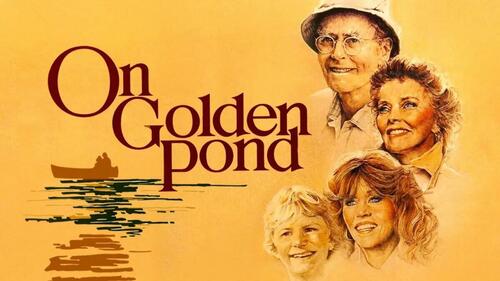
Фильмы без манипуляции
Автор: Джеффри А. Такер via «Времена Эпохи» (выделено нами)
В какой-то момент этого столетия я начал смотреть фильмы с ужасным трепетом. Есть большая вероятность, что где-нибудь в каком-нибудь фильме наступит момент, когда продюсер пошлет какой-нибудь странный политический сигнал с едва охраняемым нападением на какой-нибудь фундаментальный принцип буржуазного общества. Они стали избегать искусства для гекторинга.
 Постер фильма «Белоснежка» (2025). Фото Уолта Диснея
Постер фильма «Белоснежка» (2025). Фото Уолта ДиснеяМы смотрим фильмы по выбору. Мы платим, чтобы увидеть их в основном. Зачем нам это делать, если смысл фильма в том, чтобы украдкой атаковать основные ценности и проповедовать какое-то странное проснувшееся вероучение? Слишком много раз меня ужалили, и я гораздо более осторожен, чтобы избежать всего, что кажется закодированным с политической целью. Жизнь слишком коротка.
Вот почему я никогда не удосужилась посмотреть живую версию «Белоснежки», которая вышла в этом году.. Она была закодирована левой и ревизионистской даже в продвижении. Фильм был встречен ужасными отзывами и вошел в историю как одна из худших инвестиций в кино, когда-либо сделанных Disney. Это могло бы быть иначе.
Загадка для меня в том, почему Дисней не мог знать результат с самого начала. Зачем этой компании тратить 250 миллионов долларов на уверенного неудачника? Чтобы понять, Нам нужно исследовать, как идеологический фанатизм съедает рациональность.
К счастью, в наше время любой может перейти на бесплатный сайт фильмов, который поддерживается рекламой, такой как Tubi (третий по популярности сервис после Netflix и Amazon Prime), и сразу же доступны тысячи отличных шоу и фильмов. Это не все, но есть настоящие сокровища.
Я смутно помню, когда «На Золотом пруде» вышел в 1981 году. Это считалось старомодным и немного скучным, попытка развернуть два отпрыска Голливуда (Генри Фонда и Кэтрин Хепберн) в последние годы кассового успеха. Фильм получил три «Оскара» и стал огромным триумфом. По-видимому, Фонда и Хепберн никогда не встречались до фильма, но они были просто волшебными вместе.
Красота фильма неописуема. Он расположен на классическом озере Новой Англии летнего коттеджа в Нью-Гемпшире на высоте красоты природы, раскрывая нежные отношения этой стареющей пары. Она избалованная любительница природы, игр и жизни, и он крабовый отставной профессор с корявым внешним путем, но красивой внутренней душой. Тема смерти нависает повсюду. Я не могу придумать фильм, который более достоверно изображал бы борьбу старения.
Их дочь играет Джейн Фонда в ее расцвете. Она приезжает с новым бойфрендом, который является отцом-одиночкой мальчика 13 лет, который уже измотан и циничен. Отношения между стариком и мальчиком основаны на различных видах летней деятельности, таких как катание на лодках, рыбалка и плавание.
Отец раскрывает секрет, что есть большая форель, которую он называет Уолтер, которая уклонялась от поимки в течение многих лет. Они охотятся на эту рыбу в течение нескольких недель, ловя многих других по пути, но не ту, которую они хотят. Когда фильм закрывается, они, наконец, ловят Уолтера, но позволяют ему уйти из уважения к его размеру, могуществу и долгой жизни.
Все это напоминает огромную драму другой великой книги, снятой в нескольких фильмах: «Моби Дик» Германа Мелвилла. Это один из величайших американских романов, который, как ни странно, страшнее, чем тщательно прочитанный. Написанный в 1851 году, он получил огромную известность благодаря детальному учету китобойной промышленности и культуры в то время, когда китовый жир был самым востребованным ресурсом для освещения до появления электричества.
Капитан Ахаб собирает китобойную экспедицию, но с фанатичным желанием заполучить самого большого кита из всех, который заставил его потерять ногу. Целью поездки была не прибыль, а месть, которую моряки на лодке знали, но недооценили силу одержимости своего капитана. Путешествие приведет их в Южно-Китайское море и завершится серьезным уроком о проблеме целеустремленных навязчивых идей, невозмутимых заботой о других и более широком контексте.
Читатель или зритель является поклонником Капитана и его гения как можно дольше, искренне надеясь, что он получит свое желание. Урок истории приходит только с окончанием гибели, и только наоборот очевидно, что он позволил своей одержимости затуманить все свои суждения.
 Постер фильма «На золотом пруду» (1981). IPC Films / Универсальные фильмы
Постер фильма «На золотом пруду» (1981). IPC Films / Универсальные фильмыПоиск рыбы в «На Золотом пруду» является рациональным и спортивным. Обе истории происходят в Новой Англии, и, конечно, параллели здесь не случайны. Один из них демонстрирует деструктивный фанатизм, а другой — умеренные и любящие амбиции.
Оба фильма — это то, что мой наставник Мюррей Ротбард назвал «кинофильмами», что означает, что они глубокие, захватывающие, эмоционально богатые, замечательные и вызывающие воспоминания, а также бесплодные скрытые и манипулятивные попытки запугивать или манипулировать политикой зрителя. Сегодня молодые люди, которые не смотрят старые фильмы, вероятно, не знают смысла таких вещей.
Мюррей не стал пересматривать «На Золотом пруде», насколько я знаю, но я уверен, что он обожал бы фильм. Действительно, я был ошеломлен невинностью сюжета и комфортом, который приходит с осознанием того, что ни в один момент фильма не упадет другая обувь, и нам будет представлена лекция о зле нормального общества.
Это верно для большинства фильмов, снятых в 20-м веке, прежде чем идеология пришла, чтобы разрушить их. Мы можем думать об идентитарной политике как о эквиваленте кита капитана Ахава, чего левые преследовали с фанатической энергией вплоть до собственного самоуничтожения. Я вижу, как это работает в Нью-Йорк Таймс, в крупных корпорациях и в секторах правительства, где одна идея затопила всю рациональность и даже заботу о показателях прибыльности.
Роль Моби Дика в этом случае занята злонамеренным видением «белого» христианского общества и ценностей, которые его поддерживают, как неисправимо коррумпированных и достойных только уничтожения. За последние 10 лет она настолько вышла из-под контроля, что небольшая, но мощная группа писателей попыталась изменить дату основания Америки и начать дикую войну с президентом, который, как они считали, представлял все, что они ненавидели.
Есть правда в том, что «синдром Трампа» разрушил огромное количество искусства, журналистики, комментариев и культуры. В первом и втором президентских сроках Трампа есть много разногласий, и нет ничего плохого в том, чтобы это прояснить. Проблема приходит с целеустремленной одержимостью, которая преследует кита за счет всего остального.
Правильный подход — это подход Генри Фонда к «Вальтеру» форели. В охоте есть приключения. Политика как нормальный спорт — это здорово. Это обостряет навыки наблюдения, аргументации и риторики. В отличие от Генри, который отпускает рыбу, когда ее ловят, враги Трампа подняли ставки до максимально возможного уровня, пытаясь посадить его в тюрьму.
Мы живем в меняющиеся времена, когда проснувшаяся идеология находится на веревке, запрещена во многих секторах общества и недофинансирована в соответствии с политикой. СказанныйАппарат понимания, стоящий за идеологией, долго будет существовать в культуре, глубоко институционализированной в научных кругах, профессиональных обществах и средствах массовой информации. Это верно и для фильмов.
Хорошие фильмы могут вернуться, и, возможно, это происходит сейчас, но если вы похожи на меня, я жду, пока отзывы не будут опубликованы, и избегаю всего, что закодировано, просто потому, что я не хочу платить за оскорбление. На данный момент я прибегаю к красоте и роскоши старых фильмов без фанатизма, который скомпрометировал так много элитной культуры.
Мнения, выраженные в данной статье, являются мнениями автора и не обязательно отражают взгляды The Epoch Times или ZeroHedge.
Тайлер Дерден
Сат, 05/31/2025 - 10:30












